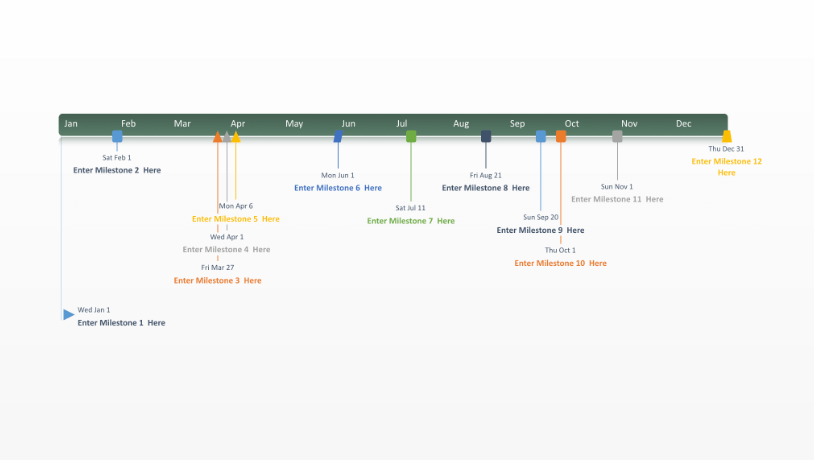Over-the-Counter Birth Control: A New Era Of Reproductive Healthcare

Table of Contents
Increased Accessibility and Convenience of Over-the-Counter Birth Control
Over-the-counter birth control promises to break down significant barriers to accessing essential reproductive healthcare. Currently, many women face substantial hurdles in obtaining prescription birth control.
Breaking Down Barriers to Access
-
Geographical Limitations: Women in rural areas or underserved communities often lack access to healthcare providers who can prescribe birth control, resulting in limited options and unintended pregnancies.
-
Financial Barriers: The cost of prescription birth control, even with insurance, can be prohibitive for many women, forcing difficult choices between essential needs and reproductive health. High co-pays and deductibles further exacerbate this issue.
-
Insurance Coverage Issues: While the Affordable Care Act mandates coverage for many preventative services, including contraception, navigating insurance complexities remains a challenge for many.
-
Reduced reliance on doctor's appointments and lengthy prescription processes: OTC birth control eliminates the need for appointments and prescription refills, significantly increasing convenience.
-
Increased affordability for those without insurance or with high co-pays: OTC availability can make birth control significantly more affordable, regardless of insurance status.
-
Improved access for individuals in rural or underserved areas: Increased availability in pharmacies removes geographical barriers.
-
Greater convenience for individuals with busy schedules: Obtaining birth control becomes significantly easier, fitting seamlessly into already busy lives.
Studies show that millions of women lack consistent access to contraception, leading to higher rates of unintended pregnancies. The shift towards OTC birth control could dramatically improve these statistics.
Types of Over-the-Counter Birth Control and Their Effectiveness
Several types of birth control could potentially become available over-the-counter, offering diverse choices for women.
Hormonal Methods
Hormonal methods, like progestin-only pills and potentially even patches, are highly effective when used correctly.
- Effectiveness rates for each type of hormonal contraceptive: Progestin-only pills have a slightly lower effectiveness rate than combination pills, but still offer significant protection against pregnancy. Effectiveness varies based on adherence to instructions.
- Common side effects and how to manage them: Common side effects can include irregular bleeding, mood changes, and breast tenderness. These are often manageable, and information on mitigating them should be readily available.
- Instructions for proper use and potential contraindications: Clear, concise instructions for each method are crucial, along with information about medical conditions that could contraindicate their use.
Non-Hormonal Methods
Non-hormonal methods like condoms and diaphragms already have a strong presence in the OTC market. Their role may increase alongside broader access to hormonal options.
- Effectiveness rates and proper usage instructions for each non-hormonal method: Condoms offer high effectiveness when used correctly, while diaphragms require proper fitting and usage instructions.
- Advantages and disadvantages of each method compared to hormonal options: Non-hormonal options lack the hormonal side effects but may require more planning and consistent use.
- The role of proper education and access to information for effective use: Ensuring access to clear information and education on proper use is paramount for all OTC birth control options.
Offering a variety of OTC birth control choices allows women to select the method best suited to their individual needs and preferences.
Potential Impacts on Public Health and Reproductive Outcomes
The widespread availability of OTC birth control could significantly improve public health outcomes.
Reducing Unintended Pregnancies
- Statistical projections of reduced unintended pregnancies: Studies suggest that increased access to contraception could lead to a dramatic decrease in unintended pregnancies.
- Potential decrease in abortion rates: Reduced unintended pregnancies are expected to correlate with a decrease in the number of abortions.
- Improved maternal and child health outcomes: Access to birth control can positively influence the overall health of mothers and children, improving birth outcomes.
Addressing Health Disparities
- Data on existing disparities in access to reproductive healthcare: Significant disparities exist in access to reproductive healthcare based on socioeconomic status, race, and geographic location.
- How OTC birth control could bridge these gaps: OTC birth control has the potential to reduce these disparities, ensuring equal access to essential reproductive health services.
- The potential impact on overall public health: Easier access to birth control can improve overall public health, reducing the burden on healthcare systems due to unintended pregnancies and related complications.
Making birth control more accessible can lead to a significant improvement in health equity and overall population well-being.
Concerns and Considerations Regarding Over-the-Counter Birth Control
While the benefits of OTC birth control are substantial, certain considerations are essential.
Misinformation and Education
- The need for readily available educational resources: Providing accurate, easily accessible information is crucial to ensuring safe and effective use.
- Addressing potential misinformation about OTC birth control: Combating misinformation through reliable sources is crucial.
- Importance of comprehensive sex education: Comprehensive sex education is essential for responsible decision-making regarding contraception.
Potential for Increased Risk of Certain Conditions
- Potential side effects of hormonal birth control and contraindications: Women should be aware of potential side effects and contraindications and seek medical advice when necessary.
- When to seek medical consultation: Clear guidelines on when to consult a healthcare provider are crucial.
- The role of self-care and responsible decision-making: Empowering women with accurate information allows them to make informed decisions about their reproductive health.
Open discussion and access to reliable information are essential for responsible use and maximizing the benefits of OTC birth control.
Conclusion
Over-the-counter birth control offers a significant opportunity to revolutionize reproductive healthcare access. Increased convenience, affordability, and accessibility can lead to reduced unintended pregnancies, improved maternal health, and enhanced health equity. However, responsible use requires readily available, accurate information and education. Expanding access to affordable OTC birth control options is crucial for ensuring women have control over their reproductive health and for improving public health outcomes. To learn more about over-the-counter birth control options and to advocate for policies that expand access to affordable and convenient reproductive healthcare, visit resources like Planned Parenthood ([link to Planned Parenthood]). Let's work together to ensure everyone has access to the birth control they need.

Featured Posts
-
 Evaluating The Social And Economic Impacts Of Trumps Policies
Apr 22, 2025
Evaluating The Social And Economic Impacts Of Trumps Policies
Apr 22, 2025 -
 Saudi Aramco And Byd A New Ev Technology Partnership
Apr 22, 2025
Saudi Aramco And Byd A New Ev Technology Partnership
Apr 22, 2025 -
 Voices Of Dissent Anti Trump Protests In The Us
Apr 22, 2025
Voices Of Dissent Anti Trump Protests In The Us
Apr 22, 2025 -
 Tracking Karen Reads Legal Battles A Year By Year Timeline
Apr 22, 2025
Tracking Karen Reads Legal Battles A Year By Year Timeline
Apr 22, 2025 -
 Millions Stolen After Hacker Targets Executive Office365 Accounts
Apr 22, 2025
Millions Stolen After Hacker Targets Executive Office365 Accounts
Apr 22, 2025
